Country living: cut the crap and make the move
Every single one of us can slow down and connect to nature in our own way.
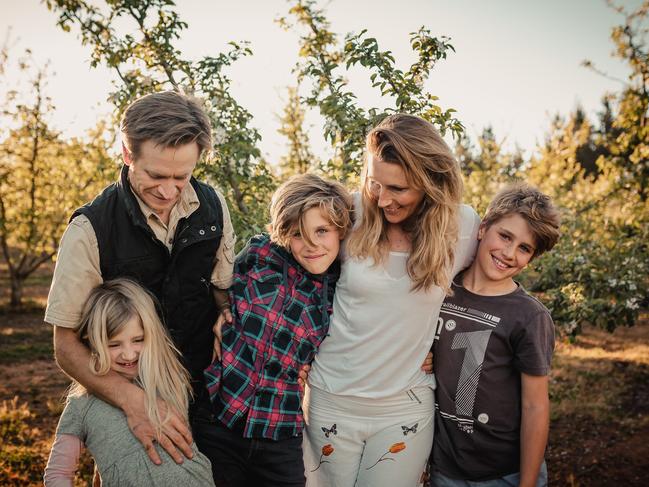
Property
Don't miss out on the headlines from Property. Followed categories will be added to My News.
Jade Miles is dirty.
Actually not just dirty but filthy. She has mud under her fingernails and in the creases of her neck. It’s in the crook of her elbows and every single knuckle. And yet, she is blissfully happy.
“Farming isn’t easy,” she says with a laugh.
“I’m up to the eyeballs in mud right now. I spend my life explaining to people that bucolic country life is not romantic and leisure-filled, that we have no fingernails, but plenty of callouses and that it’s two degrees and sleeting out.
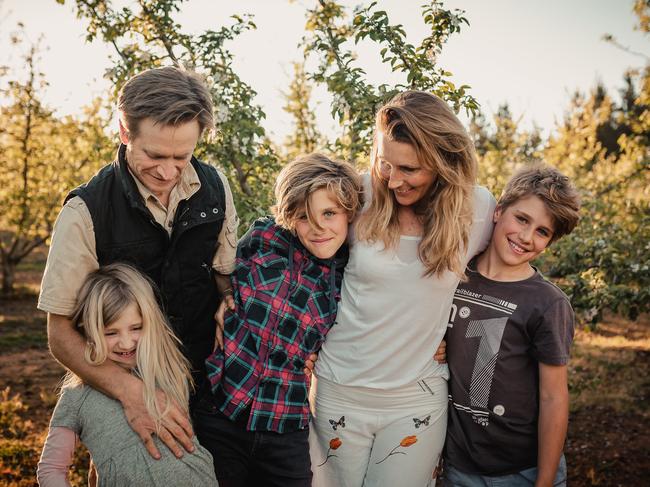
“The hours are long and it’s physically challenging but it’s also deeply, deeply rewarding. Being connected to the land feels good.”
It’s not just Jade, who along with husband Charlie runs Black Barn Farm in northeastern Victoria, who believes this to be true.
Studies bear out that what she says is entirely correct.
Research led by the University of Exeter, published in Scientific Reports, found that those who spend at least 120 minutes in nature a week are significantly more likely to report good health and higher psychological wellbeing than those who don’t connect with nature at all during an average week.
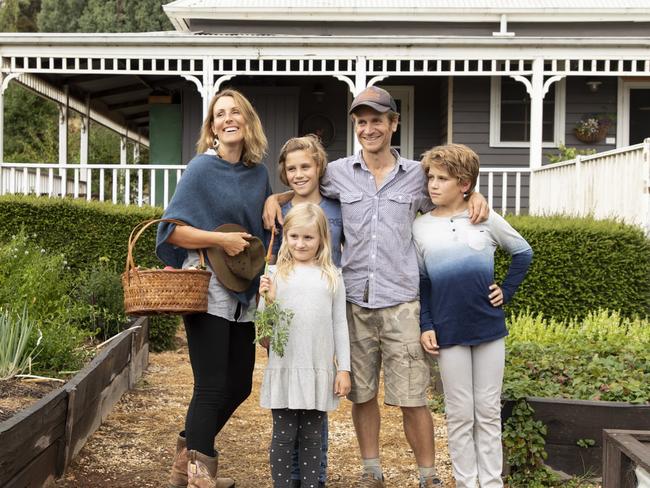
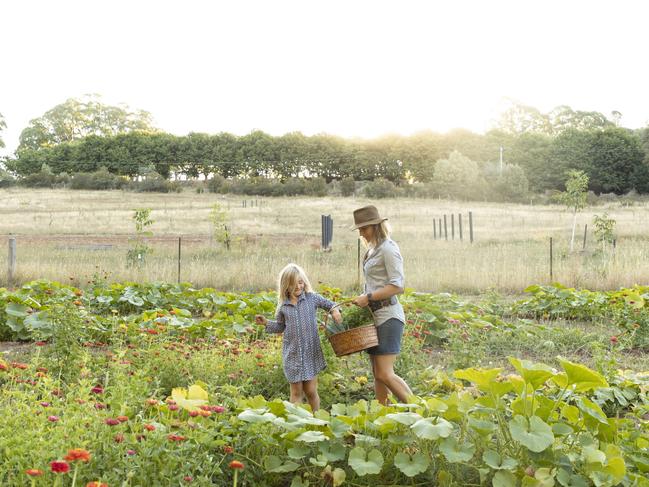
Co-author Professor Terry Hartig, of Uppsala University in Sweden, says: “There are many reasons why spending time in nature may be good for health and wellbeing, including getting perspective on life circumstances, reducing stress, and enjoying quality time with friends and family.”
Jade agrees completely. She would add, however, that we also have a duty to connect to our sunburnt country and to protect it too.
“It’s time to accept that we are part of, not in control of, the natural world,” she says.
“It’s time to lead lives with more ritual and less rubbish, more culture and less consumption, more seed-sowing and less scrolling.”
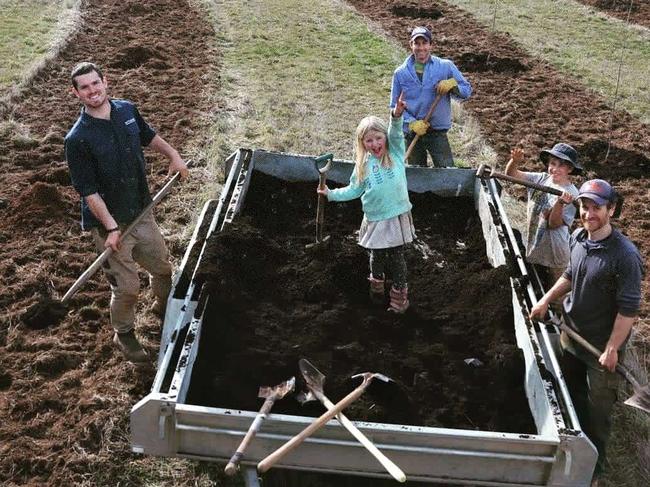
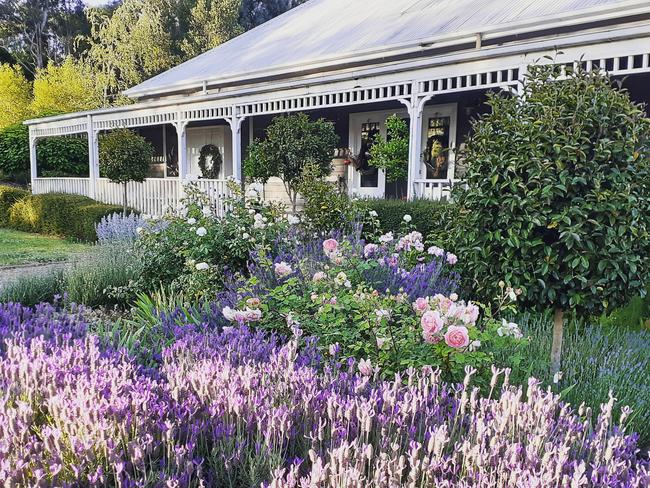
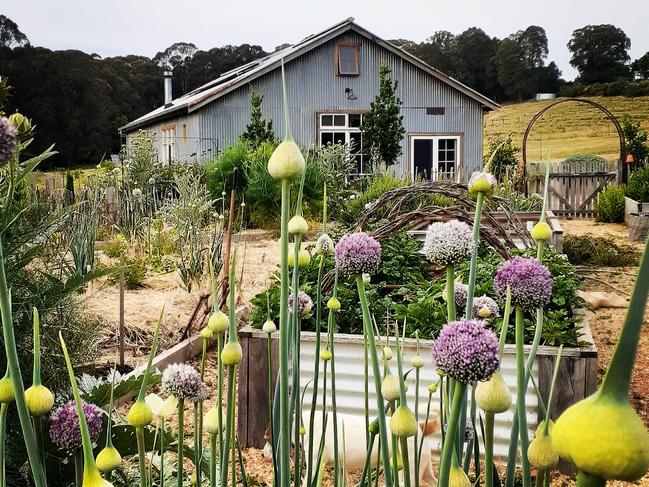
Jade, Charlie and her children Harry and Bertie, 14, and Minnie, 10, do that by running a biodiverse orchard and nursery where they grow 98 varieties of heritage fruit and berries plus raise chickens and geese. They also host regular educational events for school kids so that they can learn where their food comes from (Jade says the vast majority of kids believe food comes from the supermarket) and why farming is an important part of life.
They host events for adults too during which they discuss the principles of ‘futuresteading’, the term she and Charlie use for the way they farm and live, and practice activities such as the grafting of plants.
CONNECT TO NATURE IN YOUR OWN WAY
Jade describes her family’s life as messy, dirty and chaotic, but wonderful. And she is determined to spread the word to others. The truly beautiful thing here is that she doesn’t expect all of us to up sticks and start running our own organic farms. Jade believes we can all futurestead in our own small way and together make a very big difference.
“It’s very important to understand that every single one of us can slow down and connect to nature in our own way,” she says.
“The principles and philosophy can be applied anywhere, whether you’re in a high-rise urban rental or a backyard caravan. I’m not inviting you to move to the countryside and become self-sufficient. I believe we can all do our bit, concrete or literal jungle dwellers alike.”
Jade suggests we dip a toe in the water by growing a pot of herbs, visiting our local food co-op and walking barefoot on the grass when we go to the local park.
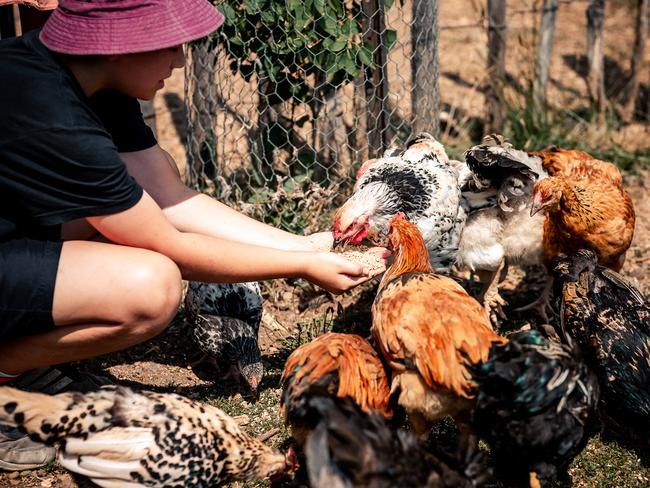
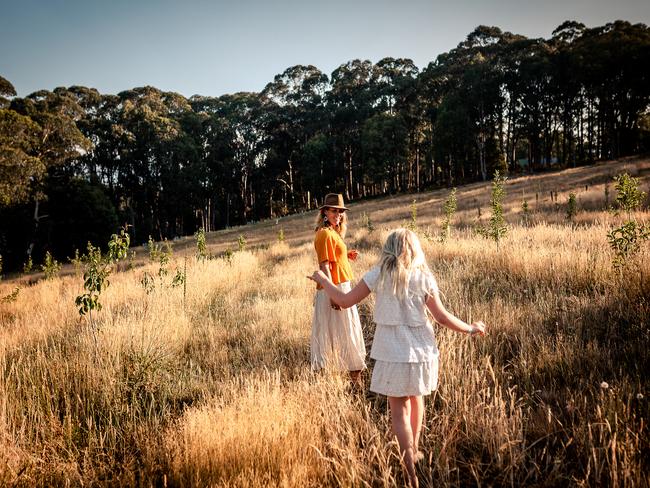
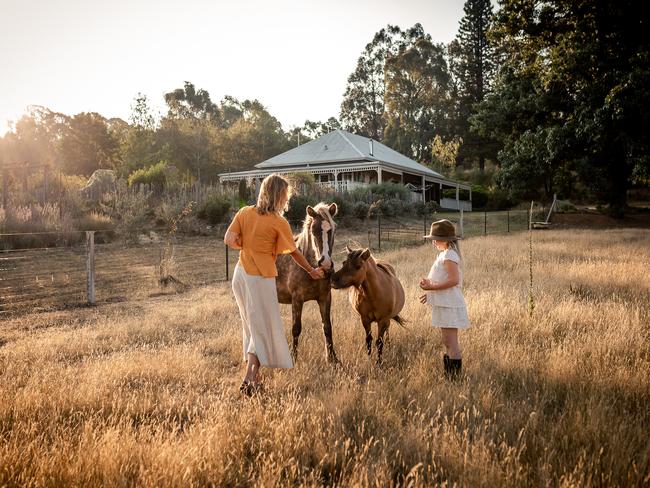
When outdoors she suggests we try and identify how many shades of green we can identify too, a practice that forces you to slow down and become more mindful of what’s going on around and inside you.
“Things like this bring consciousness to the way you’re living,” explains Jade.
“It helps you to connect to things that are bigger than you. And that’s what it’s all about.” Many find the idea appealing but then become overwhelmed by the enormousness of the task, says Jade. If that’s you she suggests you choose three small rituals to practice.
“It doesn’t matter where you live right now,” she adds.
“You can find magic in the little things if you give yourself the time.”
GIFT SEEDS
Skip the gym and instead go for a walk in nature. Tour a local park or even pay attention to the gardens in your neighbourhood. Search for new flowers and plants. Switch off the meditation app and find a quiet patch of ground on which to sit and breathe. Stop buying things you don’t need and begin connecting to your community. Offer up your services for trade.
“This is how you start,” says Jade.
“And soon those things will become magical … a desire for consumption and a focus on maintaining appearances and all that fakery and bulls**t just falls away.”
Jade also recommends we rethink buying commercial items and instead, when needed, gift seeds.
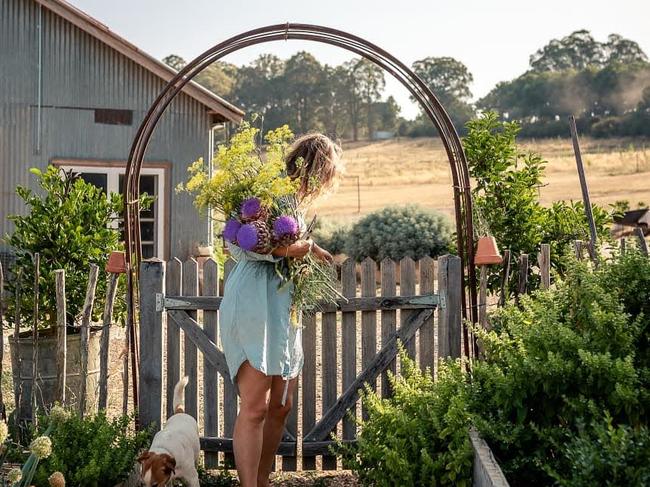
“Give someone seeds so they can grow their own vegetable garden, or seedlings, or even an orchard,” she says.
“Give someone a couple of hours of your time. Garden with them or take them on a nature tour.”
Living in this way will change your world and dramatically too. You’ll spend less so can work less and more importantly, connect with those around you.
“It does start to redefine what your idea of enough is,” explains Jade.
“We have a lot of white noise around what success means and what it should look like, but a healthy body, an ability to grow a little food, cook a meal from scratch or gift something you made yourself … that’s as powerful as leaving the city and living on a farm.”
Jade Miles is the author of Futuresteading – Live Like Tomorrow Matters (Murdoch Books, $39.99)
Originally published as Country living: cut the crap and make the move




